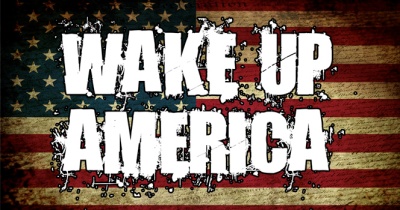“The Constitution is not neutral. It was designed to take the government off the backs of the people.” —Justice William O. Douglas
By John Whitehead (about the author) OpEdNews.com October 22, 2014
With every passing day, it becomes more apparent that we live in an age of hollow justice, with government courts, largely lacking in vision and scope, rendering narrow rulings focused on the letter of the law. This is true at all levels of the judiciary, but especially so in the highest court of the land, the U.S. Supreme Court, which is seemingly more concerned with establishing order and protecting government agents than with upholding the rights enshrined in the Constitution.
Given the turbulence of our age, with its police overreach, military training drills on American soil,domestic surveillance, SWAT team raids, asset forfeiture, wrongful convictions, and corporate corruption, the need for a guardian of the people’s rights has never been greater.
Subscribe or “Follow” us on RiseUpTimes.org. Rise Up Times is also on Facebook! Check the Rise Up Times page for posts from this blog and more! “Like” our page today. Rise Up Times is also on Pinterest, Google+ and Tumblr. Find us on Twitter at Rise Up Times (@touchpeace).
Yet when presented with an opportunity to weigh in on these issues, what does our current Supreme Court usually do? It ducks. Prevaricates. Remains silent. Speaks to the narrowest possible concern. More often than not, it gives the government and its corporate sponsors the benefit of the doubt. Rarely do the concerns of the populace prevail.

In recent years, for example, the Court has ruled that police officers can use lethal force in car chases without fear of lawsuits; police officers can stop cars based only on “anonymous” tips; Secret Service agents are not accountable for their actions, as long as they’re done in the name of security; citizens only have a right to remain silent if they assert it; police have free reign to use drug-sniffing dogs as “search warrants on leashes,” justifying any and all police searches of vehicles stopped on the roadside; police can forcibly take your DNA, whether or not you’ve been convicted of a crime; police can stop, search, question and profile citizens and non-citizens alike; police can subject Americans to virtual strip searches, no matter the “offense”; police can break into homes without a warrant, even if it’s the wrong home; and it’s a crime to not identify yourself when a policeman asks your name.
What a difference nine people can make.
The Roberts Supreme Court’s decisions in recent years, characterized most often by an abject deference to government authority, military and corporate interests, have run the gamut from suppressing free speech activities and justifying suspicionless strip searches and warrantless home invasions to conferring constitutional rights on corporations, while denying them to citizens.
Contrast that with the Warren Court (1953-1969), whose rulings were instrumental in shoring up critical legal safeguards against government abuse and discrimination. Without the Warren Court, there would be no Miranda warnings, no desegregation of the schools and no civil rights protections for indigents. Yet more than any single ruling, what the Warren Court did best was embody what the courts should always be–institutions established to intervene and protect the people against the government and its agents when they overstep their bounds.
Justice Douglas, who served on the Warren Court, was particularly vocal in warning against a domineering, suspicious, totalitarian, police-driven surveillance state. His words stand as a potent reminder that while the technology and social concerns of Douglas’ day have undergone dramatic transformations in our time, the rights we are struggling to safeguard remain the same, as do the threats posed by the government.
For instance, Douglas had plenty to say about “the privacy of our citizens and the breach of that privacy by government agents“:
We are rapidly entering the age of no privacy, where everyone is open to surveillance at all times; where there are no secrets from government. The aggressive breaches of privacy by the Government increase by geometric proportions. Wiretapping and “bugging” run rampant, without effective judicial or legislative control. Secret observation booths in government offices and closed television circuits in industry, extending even to rest rooms, are common. Offices, conference rooms, hotel rooms, and even bedrooms are “bugged” for the convenience of government.
Speaking to the ramifications of indiscriminate government surveillance, Douglas warned:
Once sanctioned, there is every indication that their use will indiscriminately spread. The time may come when no one can be sure whether his words are being recorded for use at some future time; when everyone will fear that his most secret thoughts are no longer his own, but belong to the Government; when the most confidential and intimate conversations are always open to eager, prying ears.
When that time comes, privacy, and with it liberty, will be gone. If a man’s privacy can be invaded at will, who can say he is free? If his every word is taken down and evaluated, or if he is afraid every word may be, who can say he enjoys freedom of speech? If his every association is known and recorded, if the conversations with his associates are purloined, who can say he enjoys freedom of association? When such conditions obtain, our citizens will be afraid to utter any but the safest and most orthodox thoughts; afraid to associate with any but the most acceptable people. Freedom as the Constitution envisages it will have vanished.
Perhaps the greatest difference between Justice Douglas and his contemporaries and those who occupy the bench today can be found in his answer to a government that refuses to listen to its citizen or abide by the rule of law. “We must realize that today’s Establishment is the New George III,” noted Douglas. “Whether it will continue to adhere to his tactics, we do not know. If it does, the redress, honored in tradition, is also revolution.”
One Comment
Comments are closed.




Reblogged this on Awakestate.